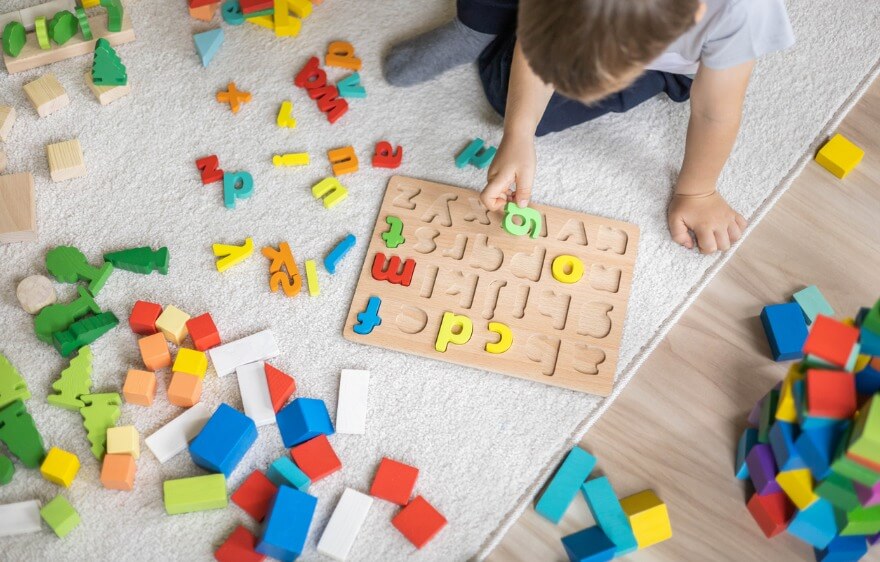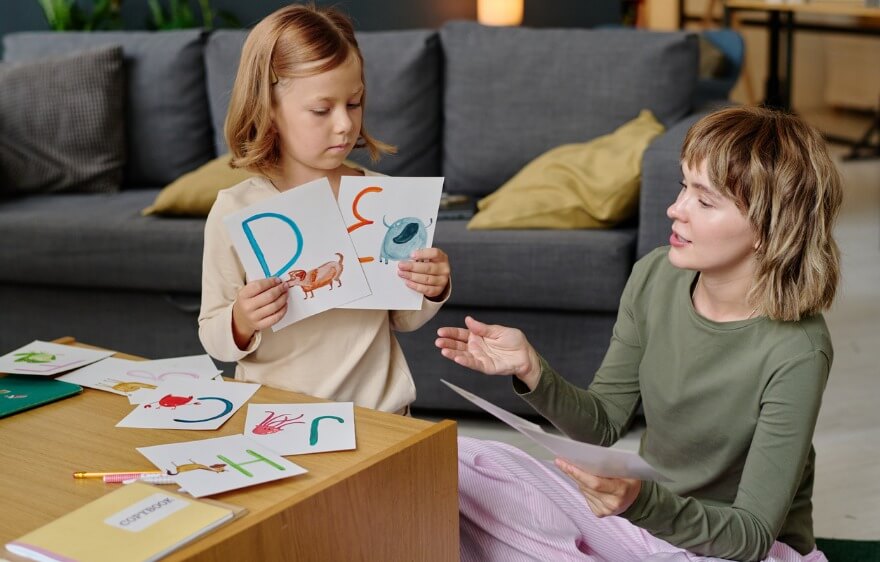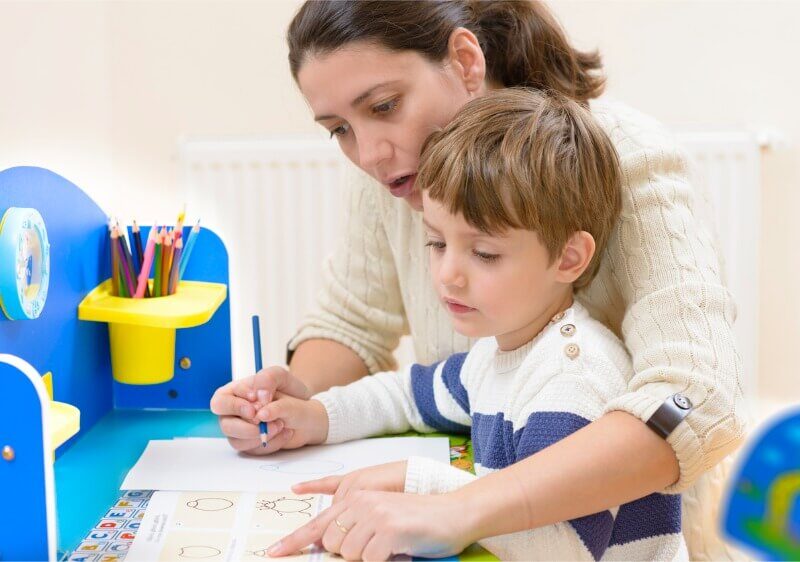As a parent, few things are more heartwarming than hearing your child express themselves with new words, funny phrases, or heartfelt questions. Watching your preschooler’s language blossom is not only exciting, it’s a crucial part of their overall development. Language is how children connect with others, understand the world, and build the foundation for learning. But for many parents, it’s not always clear what’s typical or how to best support their child’s progress.
If you’re looking for guidance, we’re here to walk you through key tips for developing language skills in preschoolers. This easy-to-understand guide offers insight into speech milestones to help you understand when extra support, such as speech therapy, might be helpful.
The Importance of Communication in Early Childhood
During the preschool years, which typically span ages three to five, children go through an extraordinary period of growth in communication. They begin to move beyond single words and short phrases, learning to express complex thoughts, ask questions, tell stories, and understand the conversations around them.
Developing language skills in preschoolers is about more than vocabulary. It includes how they use language socially, their ability to understand and follow directions, and their grasp of grammar and sentence structure. This is also the stage when children become curious, imaginative, and eager to interact with others, all of which contribute to their communication abilities.
Strong language skills support emotional development, social bonding, and academic readiness. In contrast, delays in speech or language can lead to frustration, behavioral challenges, or difficulties with reading and writing later on. That’s why early support is so valuable.
Speech and Language Milestones in Preschoolers
Before diving into practical tips, it’s helpful to know what typical development looks like. Children develop at different rates, but here are some general speech milestones many preschoolers reach between ages three and five:
- Uses three to five-word sentences by age three
- Follows simple two or three-step directions
- Can answer simple questions such as “What’s your name?” or “Where do you live?”
- Understands concepts like “in,” “on,” “under,” and “big” versus “small”
- Asks “why” and “how” questions frequently
- Talks clearly enough for strangers to understand most of the time by age four
- Tells short stories or recounts events from their day
- Understands turn-taking in conversation
- Uses plurals and past tense correctly
- Knows and uses more than 1,000 words by the time they turn five
If your child is meeting most of these milestones, they are likely on track. But if you notice gaps or concerns, it’s always best to seek a professional opinion sooner rather than later.
12 Tips for Developing Language Skills in Preschoolers
When it comes to developing language skills in preschoolers, consistency, patience, and interaction are key. Here are some of the most effective ways you can support your child’s communication every day.
1. Talk Throughout the Day
Narrate what you’re doing together. Whether you’re cooking, cleaning, or shopping, use everyday moments to introduce new words and describe your actions.
2. Listen Actively
Give your child your full attention when they speak. Maintain eye contact, respond with interest, and let them know their words matter. This builds confidence and encourages more communication.
3. Read Aloud Daily
Reading is one of the most powerful tools for developing language skills in preschoolers. Choose age-appropriate books with engaging pictures and read with expression. Pause to ask questions or point out interesting details.
4. Sing Songs and Nursery Rhymes
Songs naturally emphasize rhythm, rhyme, and repetition, all of which help children recognize patterns in language and expand their vocabulary.
5. Encourage Storytelling
Ask your child to tell you stories, real or imaginary. Prompt them with open-ended questions such as “What happened next?” or “Why do you think that happened?” This helps them organize thoughts and use more complex sentences.
6. Limit Screen Time
While educational apps and shows have their place, nothing replaces face-to-face interaction. Try to prioritize time spent talking, reading, and playing over passive screen use.
7. Use Play-Based Learning
Play is the natural language of preschoolers. Role-playing, puppet shows, and pretend play all give your child opportunities to practice conversation, expand their vocabulary, and express emotions.
8. Expand on What They Say
If your child says “doggy bark,” respond with “Yes, the dog is barking loudly because he heard a noise.” This models more complete sentence structures and adds descriptive language.
9. Ask Open-Ended Questions
Instead of yes or no questions, ask things such as “What was your favorite part of the park?” or “How did you build that tower?” This encourages more elaborate responses.
10. Be Patient With Mistakes
It’s natural for preschoolers to mispronounce words or use incorrect grammar. Gently repeat the correct version rather than correcting them harshly. For example, if they say “I goed to the zoo,” respond with “You went to the zoo? That sounds fun!”
11. Introduce New Words in Context
Children learn best when words are meaningful. Use rich vocabulary during daily routines, then connect the new words to something they can see or do. For example, “Let’s put your jacket on because it’s chilly outside.”
12. Create a Language-Rich Environment
Surround your child with opportunities to hear and use language. Have books available, label items in the house, listen to audiobooks in the car, and encourage interaction with peers.
All of these strategies support the natural process of developing language skills in preschoolers. What’s most important is making communication a joyful and regular part of daily life.
Signs of a Speech or Language Delay
While some children are naturally quiet or take a little longer to start talking, there are certain red flags that may indicate a speech or language delay. Consider speaking with a professional if your child:
- Speaks very little or not at all by age three
- Struggles to understand simple directions
- Has unclear speech that even familiar adults struggle to understand
- Rarely asks questions or attempts to initiate conversation
- Uses only a few words and does not seem to be adding new ones
- Echoes words or phrases without using them meaningfully
- Gets frustrated easily when trying to communicate
Recognizing these signs early is an important step toward getting the support your child may need.
When to Consider a Speech Therapist
If you’re concerned about how your child is developing language skills in preschoolers, trust your instincts. A licensed speech-language pathologist can conduct a comprehensive evaluation to determine whether your child is developing as expected or may benefit from therapy.
You don’t need to wait for a referral from a pediatrician. If you notice persistent issues or feel that your child is falling behind peers, it’s okay to reach out directly to a speech therapy provider. Early intervention often leads to the best outcomes.
How Speech Therapy Can Help
Speech therapy offers targeted support to help children build essential communication skills. A speech-language pathologist works with your child using play, conversation, books, games, and other engaging techniques tailored to your child’s specific needs.
Some of the specific speech therapy goals and areas therapy may address include:
- Articulation of specific sounds
- Sentence structure and grammar
- Understanding and using vocabulary
- Social communication and turn-taking
- Listening skills and comprehension
Therapists also coach parents and caregivers on how to reinforce progress at home. This partnership approach helps children carry new skills into everyday life.
For families exploring speech services, it’s important to know that developing language skills in preschoolers is a collaborative journey. With the right support, many children make significant progress and grow into confident, expressive communicators.
Successfully Developing Language Skills in Your Little One
Helping your child develop strong language skills is one of the greatest gifts you can give them. By creating a language-rich environment, staying engaged in daily conversations, and knowing when to seek professional help, you’re giving your preschooler the tools to succeed in school, relationships, and beyond.
Whether you’re just starting to encourage more talking at home or you’re exploring therapy options, remember that every child develops on their own timeline. What matters most is that you stay tuned in, curious, and supportive. If you’re looking for expert guidance, don’t hesitate to reach out to a licensed speech therapist to discuss your concerns or schedule an evaluation.
Care Options for Kids is passionate about helping families connect with caring and dedicated speech therapists. Our experienced team knows how to help children meet and exceed key developmental milestones to reach their full potential. Developing language skills in preschoolers takes time, consistency, and love — but with the right tools and support, you’ll be amazed at how much your child can grow.
Schedule Your Child’s Care Assessment Today
At Care Options for Kids, we understand the unique challenges of caring for a child with health conditions. Our dedicated team of pediatric therapists is here to support your family with compassionate, expert care tailored to your child’s needs. Contact us today to schedule an assessment and learn how we can help you navigate this journey with confidence and care.
Click here to start your journey to better care.
This post is for educational and informational purposes only. You should always speak with your own therapist before implementing this information on your own.






